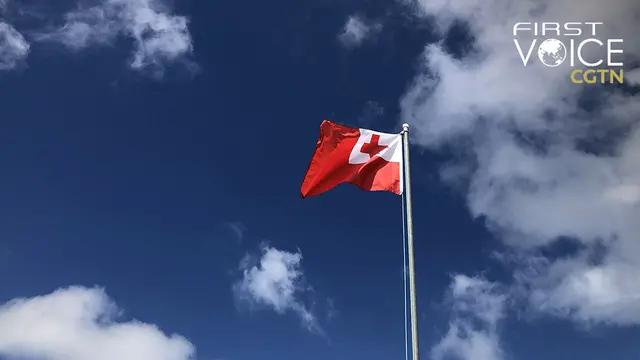The U.S. never misses a chance to discredit China.
During his visit to the Pacific island nation of Tonga, U.S. Secretary of State Antony Blinken called China's behavior in the region "problematic." "As China's engagement in the region has grown, there has been some – from our perspective – increasingly problematic behavior," Blinken said, warning China had been behind "some predatory economic activities and also investments that are done in a way that can actually undermine good governance and promote corruption."
Regional countries, not the U.S., have the ultimate say on whether China is "predatory" in interactions with them. In response to Blinken's warning, Tongan Prime Minister Siaosi Sovaleni straightforwardly said at the press conference that his country had no concerns about its relationship with China. The debt level is Washington's biggest "concern" in the region. Admittedly, Tonga – a nation of about 100,000 people – is heavily indebted to China, but this year it has already started to pay it back.
Local people's attitudes on China show the absurdity of Blinken's "concerns" about China's "problematic" behavior. When the volcanic disaster hit Tonga in 2022, China, not the U.S., was the first to assist. Many Tongans went to the Chinese embassy to express their gratitude calling China a "true friend" of Tonga, according to media reports.
In interactions with Pacific island nations, China has fully respected their unique national conditions and governance models, and supported them in safeguarding sovereignty and independence. In contrast to Washington's allegations, China's assistance to the region has no political strings attached. As a major power dedicated to building a community with a shared future, China's relationship with Pacific island nations is development-oriented.
China, known for its technological advantages in infrastructure, is one of the largest infrastructure partners with Tonga. Chinese elements can be observed nearly everywhere in this island nation. It is worth noting that even the St. George government building, where top Tongan leaders met Blinken, was constructed with an $11 million grant from China. Such investment has not only upgraded the country's infrastructure but also boosted the local employment rate, as the training courses from Chinese technicians required in the construction projects can help enhance local workers' expertise and skills.
China's role in the region is for the real benefit of local people. It is Washington instead that is sacrificing regional countries' interests for selfish political gains. The Marshall Islands, for instance, has recently called on Washington to apologize for the damage caused by 67 nuclear weapon tests the U.S. carried out between 1946 and 1958. The tests combined, according to a 2015 report published by the Pulitzer Center, were "thousands of times as powerful as the bomb dropped on Hiroshima." However, the Marshall Islands "are yet to get an apology," Kenneth Kedi, speaker of the country's parliament, said this month.
While the U.S. had regarded the Pacific island nations as a negligible peripheral region in the past decades, it interestingly has ramped up efforts to expand its influence in the Pacific region in recent years. And Tonga is the latest in a string of island nations targeted in Washington's diplomatic push. As the first U.S. Secretary of State for an official visit to Tonga, Blinken's pledge of support for the nation is welcomed. But Washington's attempt to promote its image by discrediting China is doomed to fail.
China welcomes cooperation with any other country including the U.S. in the region, as long as it is for the well-being of local people. But the U.S., shouting "support" to regional countries, has resorted to impeding China-Tonga cooperation in an attempt to boost its own image. Which country is predatory and problematic in the region? Local people have the wisdom to figure this out.
(CGTN)
 简体中文
简体中文

